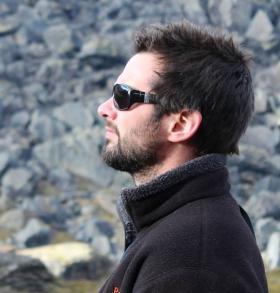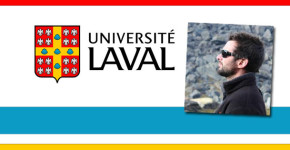 A decrease in the amount of snowfall in Canada may have far reaching results.
A decrease in the amount of snowfall in Canada may have far reaching results.
Dr. Frederic Bouchard, post-doctoratal research fellow at Université Laval, is studying the climate models of many areas across Canada and making predictions about the ecology of the area based on his findings.
Frederic Bouchard PhD is a post-doctoral fellow at the University of Laval’s Center for Northern Studies. He’s published many papers focusing on the ecology of the Arctic, his main research focus.
Dr. Frederic Bouchard – Canada’s Lakes Move Toward Widespread Dessication
Lake-rich landscapes in northern Canada are vital for wildlife and natural resources for local communities. In these regions, lakes can cover more than half of the landscape. Spring snowmelt is the most important hydrological event of the year, controlling many ecological processes. However, climate models predict that snowfall will decrease in some areas, which could have profound consequences.
We studied over 70 shallow lakes in two of Canada’s largest subarctic landscapes – Old Crow Flats, in Yukon, and Hudson Bay Lowlands, in Manitoba. By comparing chemical analysis results obtained in the water and in the sediments of these lakes, we found that about half of them showed signs of strong evaporation.
Why is that? The answer seems to be related to decreasing snow precipitation. According to the climate data, snowfall was lower than the average in the recent winters, resulting in lower snowmelt runoff during the recent springs. This trend was even more pronounced near lakes surrounded by flat terrain and sparse tundra vegetation, because there the strong winds blew the snow cover away.
Indeed, some of these lakes underwent near-complete desiccation during mid-summer 2010, following a winter of very low snowfall. Based on the sediment record of one such lake, these extremely dry conditions may be unprecedented in the past two centuries.
These findings fuel concerns that a decline in snow-cover extent in the future could lead to widespread desiccation of shallow subarctic lakes. Such changes in hydrology would have profound effects on wildlife habitat, carbon cycling, and other ecosystem services.
There are many different porn video chats on the Internet now. But this porn chat is free and does not require registration. Live Porn Video Webcams allows its visitors to have fun, get to know themselves better, and also discover something new. Best Live Cams VibraGame has collected the best porn video chats for you. Now you shouldn’t look for suitable video chats on the Internet. All the best you can find on the pages of our site (paid and free sex and porn video chats, as well as ordinary video chats for dating and communication).

Comments
One response to “Frederic Bouchard, Université Laval – Canada’s Lakes Move Toward Widespread Dessication”
Good site you have here.. It’s difficult to find high quality writing like yours
these days. I really appreciate individuals like you! Take care!!